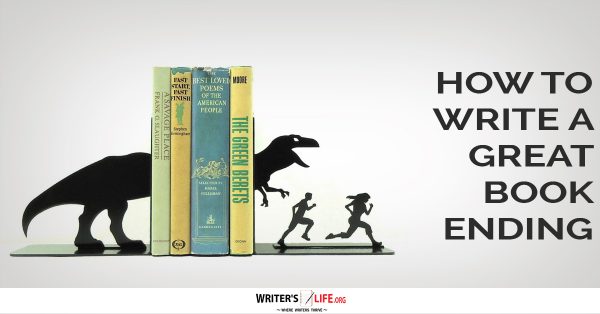- How To Tackle Jealousy In Creative Writing
- Common Submission Mistakes
- How To Stop Your Blog Becoming Boring
- The One Thing Every Successful Writer Has In Common
- How To Make Yourself Aware Of Publishing Scams
- Why Almost ALL Writers Make These Grammar Mistakes At Some Point
- 5 Tips For Authors On How To Deal With Rejection
- Top Mistakes to Avoid When Writing a Novel
- How to Avoid Common New Writer Mistakes
- 10 Mistakes New Fiction Writers Make
How To Write A Great Book Ending

Writing an ending to your novel is possibly one of the hardest parts about it. If you have planned out your whole book before you start you’ll no doubt have a good idea of what will happen at the end. But when it comes to actually writing it, it can be far harder than you may have thought.
How you end your book is so important, and something that you should give plenty of thought to. Writing an awesome ending can cement a readers opinion that your book is brilliant, or can leave them feeling confused, cheated and even betrayed!
How can you make sure that your book ends on the right note? Here are some questions to consider:
Is it the right time to end your book?
One of the worst things you can do is make your readers feel as though the book has been cut short. This is not just in terms of actual length - though this is worth considering (people want to feel as though they are getting their money’s worth after all), but how your story has played out so far. Have you made sure your readers are invested in your characters? Have you led them on a journey? Have you built up the tension, the pace, the excitement enough that your readers are gripped on every word and can’t wait to see what happens next? If you end your book before you have really told your story, you are doing both your readers and yourself an injustice.
How do you want your readers to feel?
Your readers should feel something when they finish your book (and not just relief that it’s over!). Carefully consider what lasting impact you want your story to have on them. The best books leave readers intensely feeling - this could be many different kinds of emotion -joy, sorrow, anger, outrage - but they must feel something.
Happy endings must be written so that your protagonist achieves their goal, a bittersweet ending will have the protagonist reflecting the costs and sacrifices made to do so, and a sad ending is one where perhaps your protagonist doesn’t get what they want.
Have you tied up loose ends?
Don’t end your book unless you have made sure that all loose ends are tied up. You don’t want to leave your readers confused about what happened to so and so character. While it’s OK to leave some mystery or to keep them guessing, this must be deliberate. If readers feel as though you have just forgotten about a part of your book they won’t be so forgiving!
What lessons have been learned?
Your novel ending will most likely focus on your hero and their journey. It is important to demonstrate what they have learned and how they have grown, regardless of whether they have achieved their goals or not. Your hero should be changed, and going forward will be different than before.
Developing a great ending for your novel takes time and energy. In fact, it’s worth having a separate, detailed outline just for this part of your book. As you write your novel your ending may develop and even change altogether, but making sure that you craft it well and that your reader leaves the novel feeling just as you hoped they’d feel is a marker of a truly successful story.

Bethany Cadman -author of 'Doctor Vanilla's Sunflowers'


























